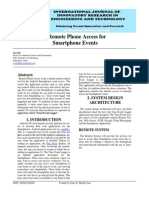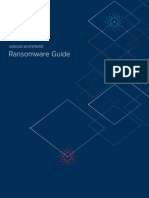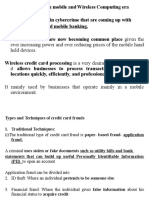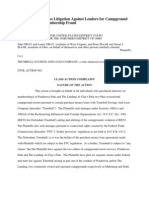0% found this document useful (0 votes)
237 views2 pagesTelecom Fraud
Telecom fraud is a type of intelligent crime where criminals do not have direct contact with victims. Common methods of telecom fraud include using similar looking websites for phishing, selling items at very low prices to get personal information, and pretending to be relatives or government officials to get money transferred. To prevent telecom fraud, people should be cautious of unsolicited communications, verify information with trusted contacts before taking actions like money transfers, and avoid disclosing personal information or acting on inexplicable messages.
Uploaded by
David WangCopyright
© © All Rights Reserved
We take content rights seriously. If you suspect this is your content, claim it here.
Available Formats
Download as TXT, PDF, TXT or read online on Scribd
0% found this document useful (0 votes)
237 views2 pagesTelecom Fraud
Telecom fraud is a type of intelligent crime where criminals do not have direct contact with victims. Common methods of telecom fraud include using similar looking websites for phishing, selling items at very low prices to get personal information, and pretending to be relatives or government officials to get money transferred. To prevent telecom fraud, people should be cautious of unsolicited communications, verify information with trusted contacts before taking actions like money transfers, and avoid disclosing personal information or acting on inexplicable messages.
Uploaded by
David WangCopyright
© © All Rights Reserved
We take content rights seriously. If you suspect this is your content, claim it here.
Available Formats
Download as TXT, PDF, TXT or read online on Scribd
/ 2





























































































